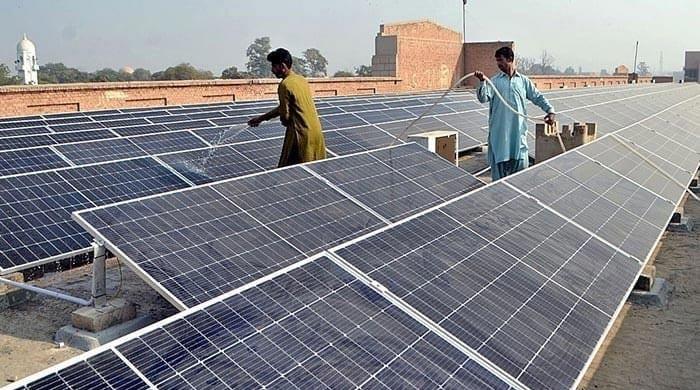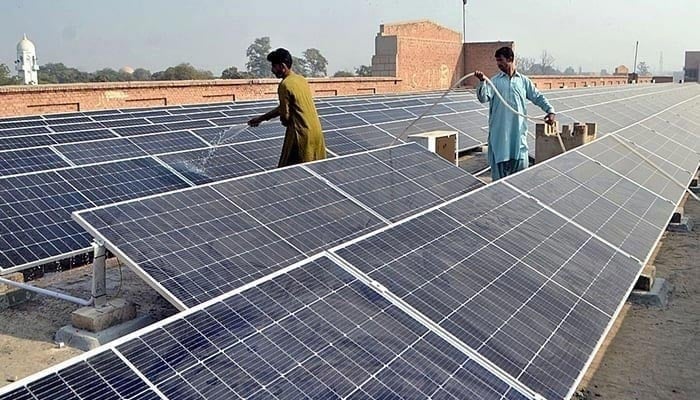Govt announces major relief in federal budget

ISLAMABAD: In a bid to promote localisation, the federal government on Wednesday announced major relief on the imports of solar panel.
Delivering the budget speech for the year 2024-25 in the National Assembly, Finance Minister Muhammad Aurangzeb said that government, in order to promote the local manufacturing of solar panels, had decided to provide tax relaxation on the import of plant, machinery, raw materials and parts used in the manufacturing of solar panels, inverters and batteries.
Similarly, he said the government had also proposed to offer tax relaxation on the import of feed and seed for the growth of fishes and lobsters to promote the aquaculture industry in the country.
Besides, the government has also proposed to provide tax incentives on the import of farming, breeding, feed mill and processing units for the aquaculture industry.
Meanwhile, the finance minister proposed to end tax exemption on import of hybrid and luxury electric vehicles.
The federal government has set a challenging tax revenue target of 13 trillion rupees ($46.66 billion) for the year starting July 1, a near 40% jump from the current year, in its national budget on Wednesday that looked to strengthen the case for a new bailout deal with the International Monetary Fund (IMF).
The ambitious revenue targets for the fiscal year through June 2025, presented by the finance minister, were in line with analyst expectations.
Key objectives for the upcoming fiscal year include bringing the public debt-to-GDP ratio to sustainable levels and prioritising improvements in Pakistan’s balance of payments position, the government’s budget document showed.
Pakistan has projected a sharp drop in its fiscal deficit for the new financial year to 5.9% of GDP, from an upwardly revised estimate of 7.4% for the current year.
Source link




